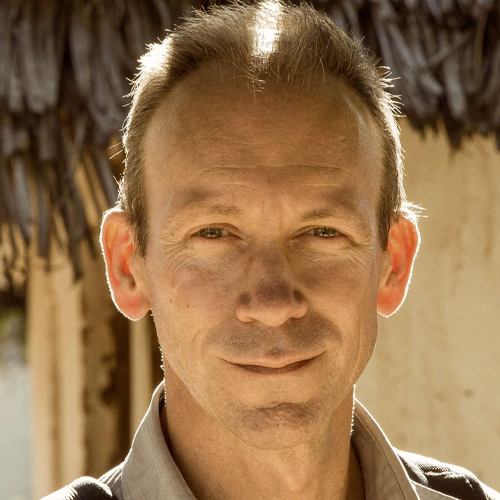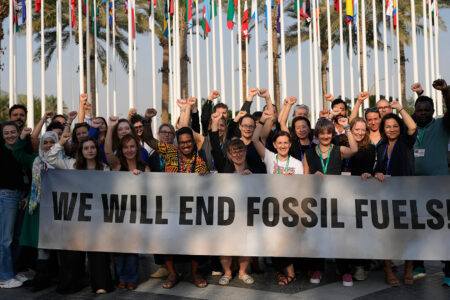
The electrification of our livelihoods, in particular the development of electric vehicles, will require massive amounts of minerals including nickel, cobalt and manganese, which are all found in huge quantities on the seafloor. Deep-seabed mining (DSM) could not only help scale up the supply of minerals needed for phasing out of fossil fuels but also prevent some of the destructive fallout of future land-based mining.
Yet, as the International Seabed Authority (ISA) is entering the final round of negotiations over its seabed mining code, major concerns and uncertainties remain about this emerging extractive sector. Renewed geopolitical concerns over the supply of critical materials and the disruption of markets for battery metals by Russia’s invasion of Ukraine have exacerbated debates over DSM.
An abundant supply of metals found on the seafloor and on seamounts – underwater sea mountains raising from the floor – could accelerate an energy transition away from fossil fuels. However, deep-sea mining presents major risks for ocean sustainability, including marine ecosystems, and has potential to bring havoc to some of the ocean’s blue carbon systems – the core of the Earth’s carbon capture and sequestration system. DSM could also undermine the economy of current mineral producers. Complex and cumulative environmental and social changes must be considered.
Strategic metals and the ocean
At the beginning of March, the London Metal Exchange suspended nickel trading after a 250 per cent price surge in two days. This was precipitated by Russia’s military invasion of Ukraine and the subsequent sanctions imposed by the Western block. However, the threat of supply chain disruptions also affected the cobalt market.
Both metals are commonly found in deep-sea polymetallic nodules deposits (Figure 1 below). In the Pacific Ocean, the Clarion-Clipperton Zone (CCZ) alone holds an estimated 270 million tonnes of nickel and 44 million tonnes of cobalt – respectively three and five times the known land-based reserves.
The DSM industry’s economic potential seems unrivaled in the world of mineral extraction because it offers untapped reserves and is backed by an international governance framework. This has potential to reduce supply concerns, geopolitical risks, resource nationalism and opposition by local communities.
Still, it is vulnerable to delays from regulations, arbitration and environmental campaigns. Additionally, there are concerns of monopolistic behaviours and a privatization of the ocean commons because the DSM sector is largely dominated by a handful of countries and companies. This exacerbates international tensions and grievances by riparian communities and environmental groups.
DSM impacts on blue carbon
With land-based reserves declining and land projects facing socioeconomic and environmental challenges, DSM operations will become an attractive alternative to power the green transition. But how “green” can a transition affecting the oceanic potential for greenhouse gas sequestration be?
Life-cycle assessments of the mining of nickel on the ocean bed found astounding results. There was an 80 per cent reduction in CO2 emission compared to land-based mining. The disruption of sequestration decreased by 88 per cent with mass-based allocation between land- and deep-sea mining. These estimates account for seabed disruption during nodule collection. In other words, it is the amount of sediments disturbed by the mining process.
Yet, some estimates consider that the sediment plume disturbance resulting from mining will affect as much as three times the surface originally mined. The extent and severity of these remain uncertain.
On one hand, the deep-sea cycling work occurs on a much longer timeline. This limits rapid CO2 emissions. On the other, the fluid nature of the ocean will favour a horizontal and vertical extension of DSM impacts even further than for land-based mining. This is because ocean acidification could be a much faster process as CO2 is released in sediment porewater. The growth of DSM for metals could also spur offshore methane hydrate exploitation, an activity with major climate risks.
There are a number of policy implications that must be considered before committing to deep-sea mining.
1. Integrate ethics into the exploration for deep-sea mining.
At first, the ethical conundrums of deep-sea mining may appear simple. Considering climate change, entering into DSM production will actively help in maintaining temperatures at livable levels. However, the destructive potential of DSM on ocean ecosystems and blue-carbon sinks raises questions in mostly unexplored areas. Opening yet another resource frontier – as seen with ultra-deep offshore oil extraction – opens up concerns about the morality of human society and the rightfulness of imposing harmful human activities on the deep ocean to improve a disastrous situation of our own making.
2. Reconceptualize timelines.
Urgently decarbonizing, but then rapidly transitioning to DSM metal supplies is a clash of perspectives. Because the deep oceans function on a longer and slower timeline, we need to think in the long term when dealing with policies affecting the seafloor and the water column.
3. Reconsider the implications of opening up yet another “frontier” of extraction.
The relentless expansion of the extractive frontier and colonization of places has left very few ecosystems on the planet untouched. The deep-sea floor is already being polluted by plastics. Records show the complex impacts of opening up frontiers and the near impossibility of stopping environmentally damaging extractive activities. There are also costs and challenges of ecological restoration. In sum, once started, DSM will be difficult to stop.
4. Improving land-based mining, promoting circular economies, reducing consumption.
Rather than opening up new mining frontiers, mining processes could be improved. This includes increasing ore and tailings recovery rates, as well as shifting to a circular economy, based on high rate of recycling, which is more cautious. Billions of dollars from the private and public sectors are now funding the recycling of battery minerals to reduce about 250,000 tonnes of waste for every one million electric vehicles produced. Fundamentally, decoupling development from resource consumption, rather than expanding the resource frontier, should remain a core priority for a green transition.
5. Transforming the ISA and the DSM industry into a deep-seafloor scientific body.
Rather than merely seeking to extract basic raw materials at huge environmental costs, the ISA and DSM should refocus. Their purpose should be on the pursuit of scientific knowledge and low-impact innovations in biotechnologies, as seen with the advisory committee of the Convention on the Regulation of Antarctic Mineral Resource Activities (replaced by the Madrid Protocol).
6. Protecting the ISA against corruption and improving transparency.
Currently, the ISA performs its tasks with a lot of bureaucracy and little transparency. This became particularly evident with the awarding of the contracts to the private sector. Its legal and technical commission is not required to disclose the name of the contractors and the reasons for the approval of the licence.
7. Consider the high seas and seafloor to be a protected common heritage of mankind.
Much like the Antarctic Treaty System (ATS) or the Outer Space Treaty (OST), the high seas and the seafloor in areas beyond national jurisdictions could be considered protected global commons. Inspiration from the 1991 Protocol on Environmental Protection to the Antarctic Treaty, and its effective ban on mining operations could provide fruitful for the deep sea. This would require shifting the narrative of the seafloor as a provider of minerals necessary for a green transition to one in which the ocean’s blue carbon is prioritized over green transition minerals.











